With Love from Dunkirk
By Suffolk Archives
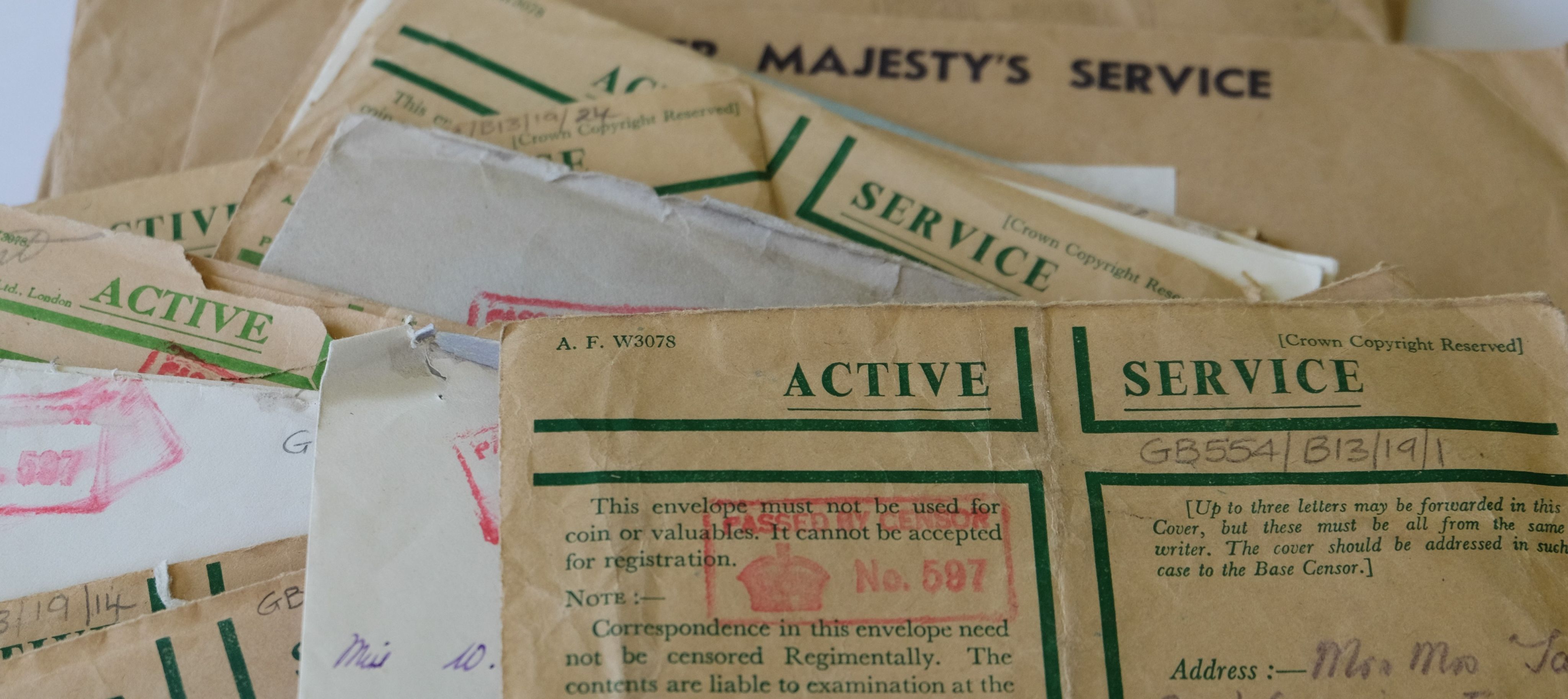
These extraordinary letters were written by men of the 1st Suffolk Regiment serving with the British Expeditionary Force in France between 25th and 27th May 1940, during the British army’s retreat towards Dunkirk. For some, it would be the last message they sent to family and friends; not all of the letters’ authors made it home.
The letters, however, never reached the loved ones they were written to. They went astray in France and were discovered in an abandoned post van by a German officer. They spent the next three decades in the officer’s loft, before he handed them in at the British Embassy in Bonn in 1969.
The Suffolk Regiment tried to deliver them to the people they had been intended for 29 years earlier. Alas, most people could not be found at the addresses on the original envelopes, and 41 of the letters were returned to the Suffolk Regiment, and are now safely kept at our Bury St Edmunds office.
This online display features a selection of the 41 letters. It has been possible to trace some details of some of the men, and in one case we have even found surviving relatives and have been able to send them a copy of the long-lost letter.
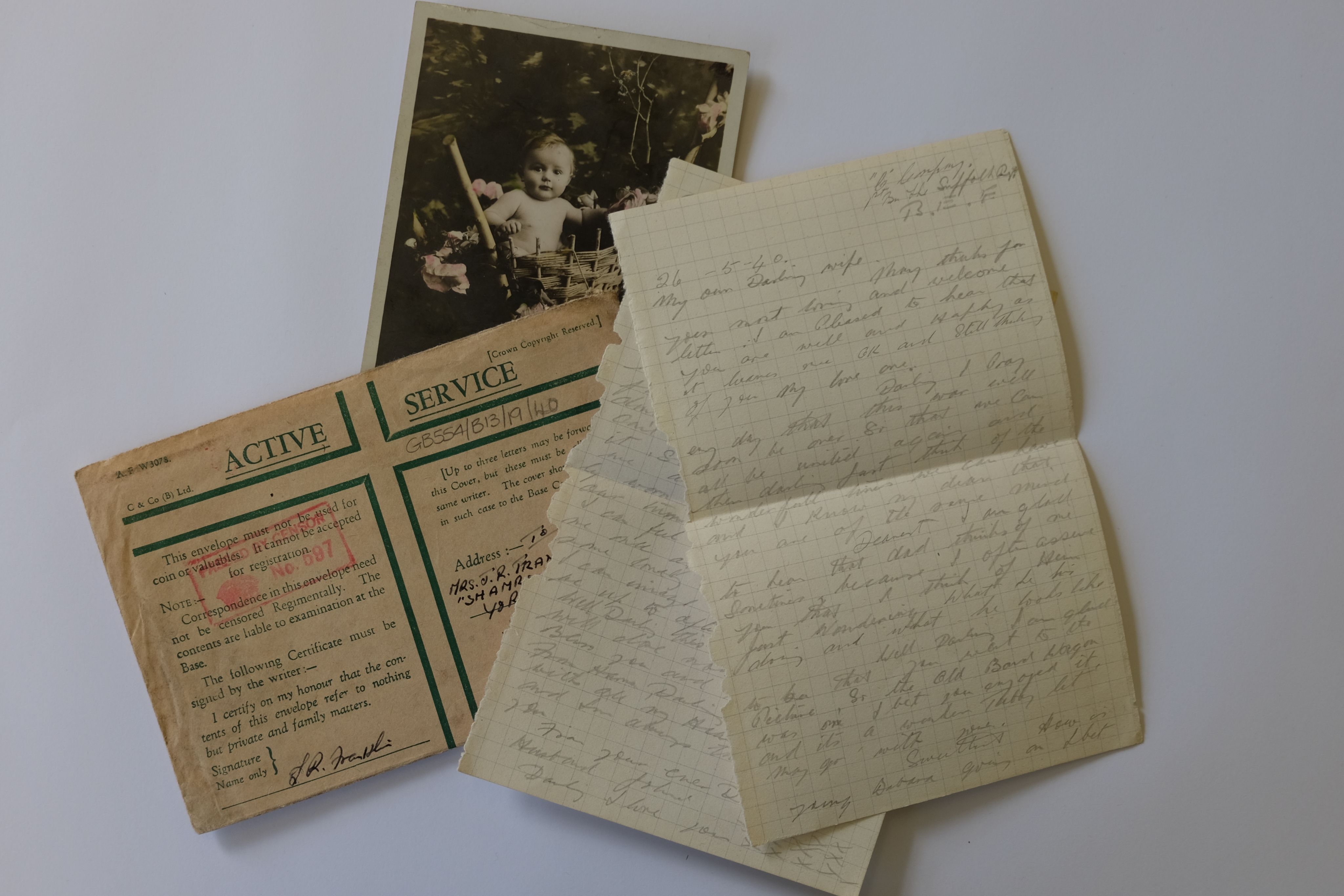
'We just wish for the best every day' - Private Harry Ling
30-year-old Harry Ling wrote to his 19-year-old wife Elsie in Haverhill on 27th May 1940. They had only been married a few months.
He asked her to send shaving soap, wash soap, and razor blades, and 'any little thing [you] think I want as we cannot get anything and I do not know when we shall get any more'.
We just wish for the best every day and I will look after myself and I know I shall get through OK so just send me all the letters you can to cheer me up
Harry ended his letter with three rows of kisses.
Harry survived the war and both he and Elsie lived into their 80s.
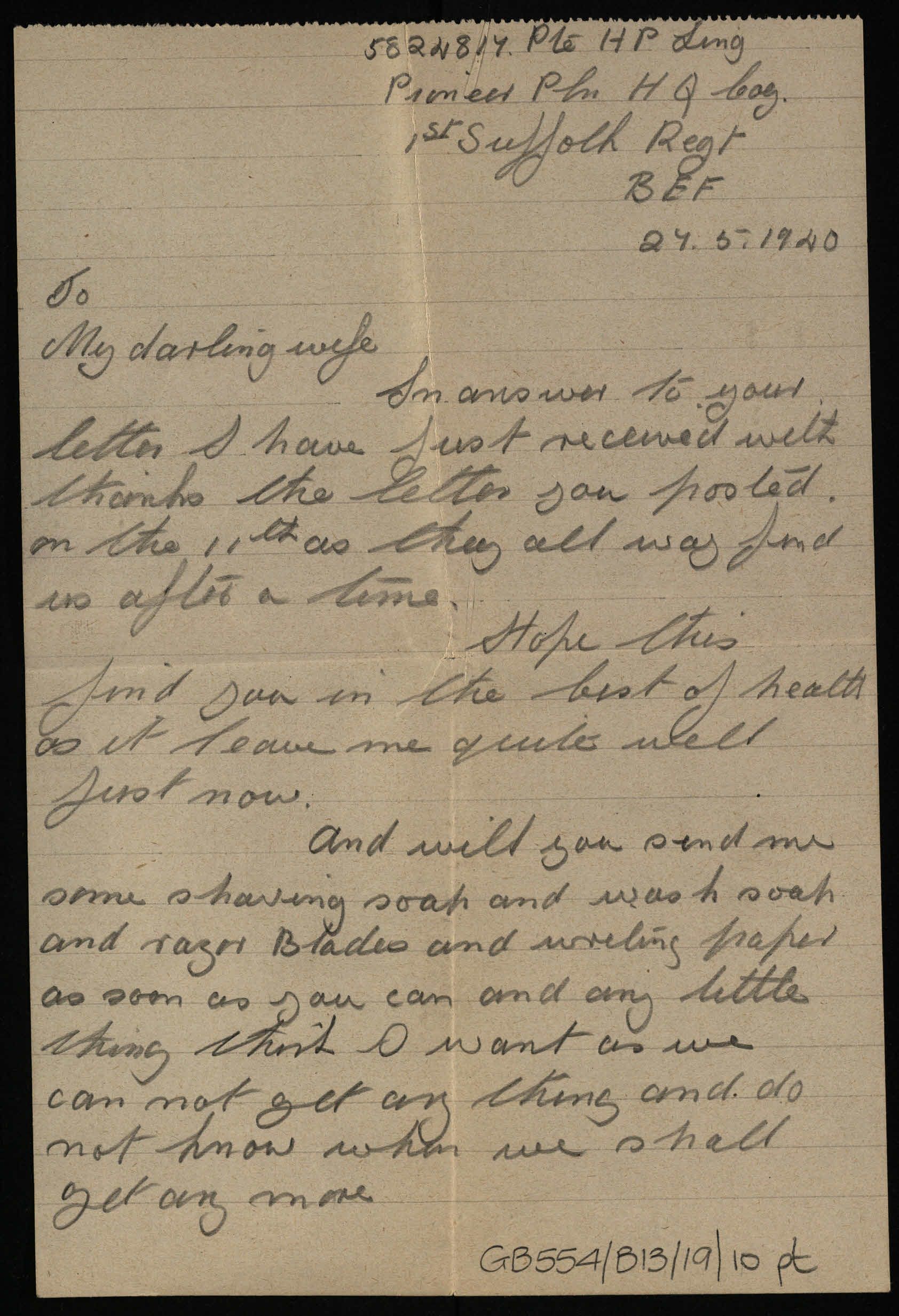
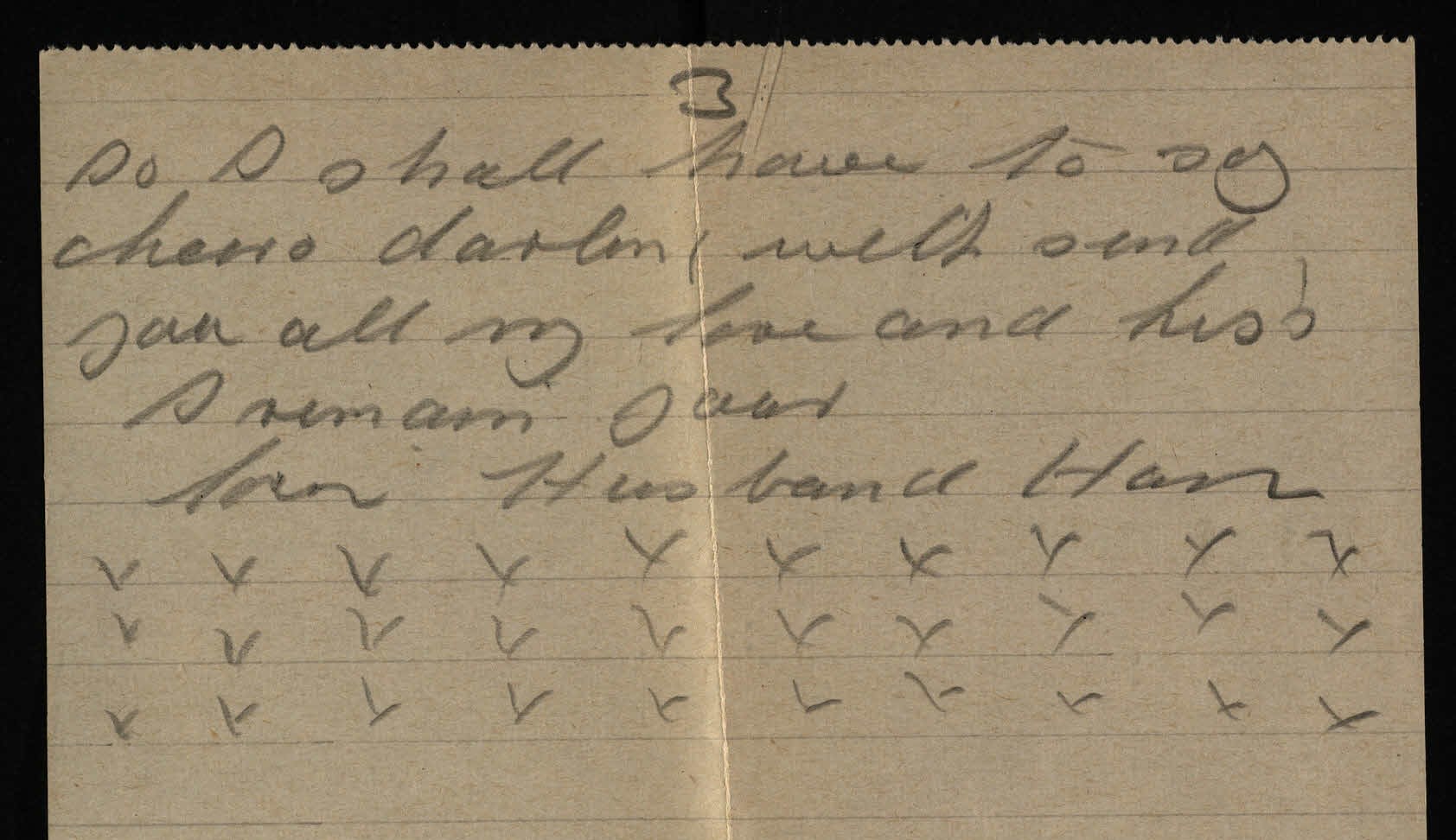
'It will be lovely to be home with you again' - Jack Payne
Private Jacob (Jack) Payne had married Dorothy Sayer in early 1940. In May 1940 he wrote to her from France at her home in Ampton, near Bury St Edmunds.
It will be lovely to be home with you again just as we was on my last leave, but time will soon roll round dear when all this trouble will be ended... don't let it get you down, though things are very bad
Jack Payne was killed in action during the evacuation from Dunkirk on 28th May 1940, just days after he wrote this letter.
Please remember me to all at home
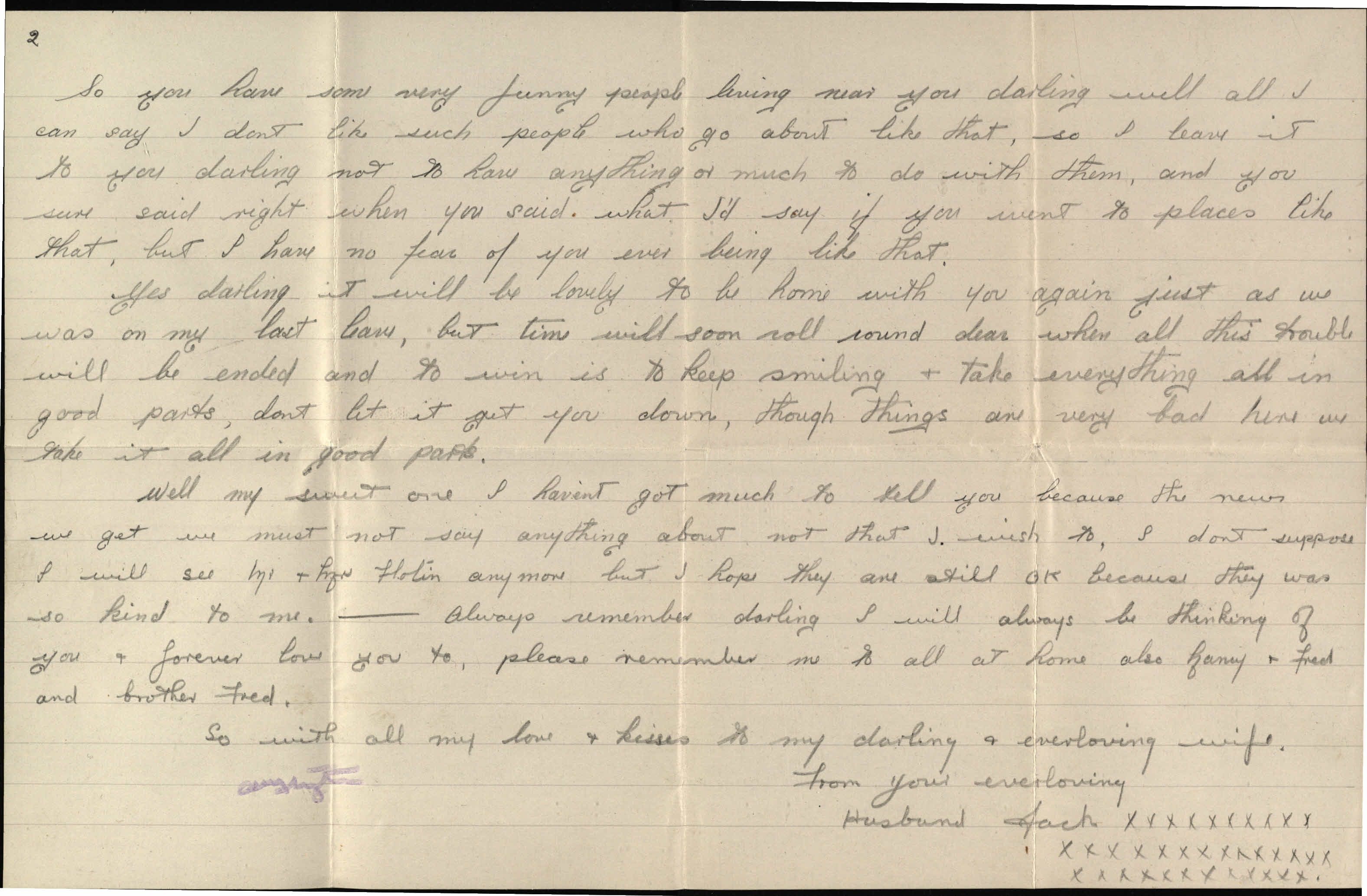
'I should like to know if you would go out with me' - Private Leman Martin
Private Leman Martin sent this rather flirtatious letter to Miss Pamela Howels in Elmswell.
The girls of France had also caught Private Martin's eye:
The girls out here don't wear hardly anything at all. Just enough to cover up the so so's
Leman had been a plasterer before joining the Army, and a member of a motorcycle club in Ipswich:
I had many nice girls on the back Pam, and I would love to take you for a ride
Private Martin was one of our authors who did not make it home from Dunkirk. He was killed in action on 27th May 1940, aged 23.
'Plenty of shells and bullets helping me on my way' - Private Reginald Dearsley
20-year-old Reginald Dearsley wrote this letter to his mother, Elizabeth Rutter, at Higham, near Bury St Edmunds. Reginald had left his job as a farm labourer the previous year to join the Army.
Reginald's letter would have left his mother in no doubt as to the dangers he was facing:
I hope this letter finds you all well as it leaves me feeling fine with plenty of shells and bullets helping me on my way... The other night we got an unexpected attack and have [sic] to leave pretty quick. That was a near one... Fancy getting shell[ed] out of your trench and then retreating with bullets all the way round you
Private Dearsley wrote very favourably of Belgium:
I think Belgium is a very nice place and the people very good to[o]. When we went through Brussels the other day we got everything we wanted. When we had a half the people gave us beer, chocolates, biscuits and plenty of fags.
Reginald survived the evacuation from Dunkirk.
In December 1941 he was sent to Singapore with the 5th Battalion of the Suffolk Regiment. He was captured by the Japanese army and forced to work on the construction of the Burma Railway.
He died on 11th October 1943 while a Prisoner-of-War in Thailand, aged 22.
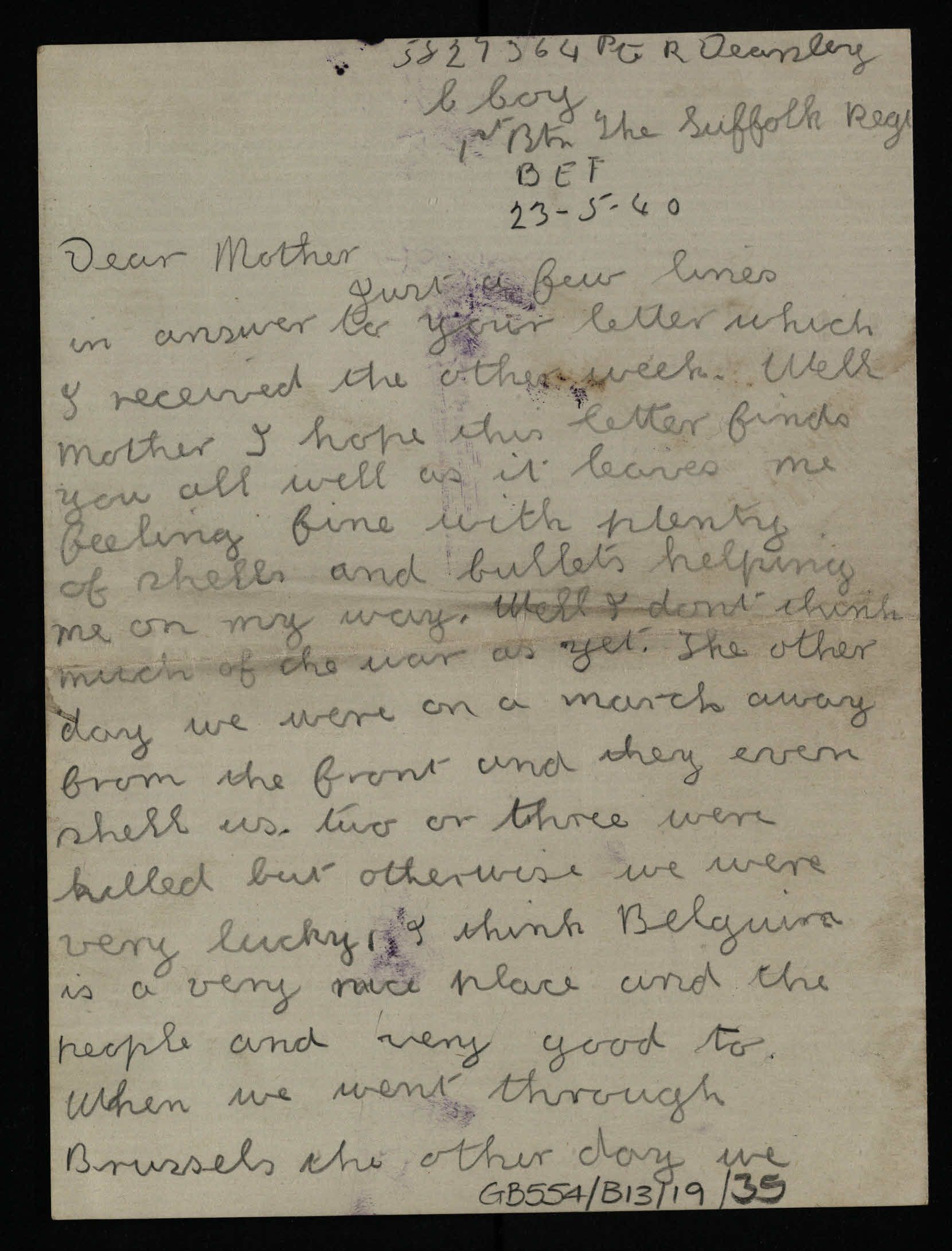
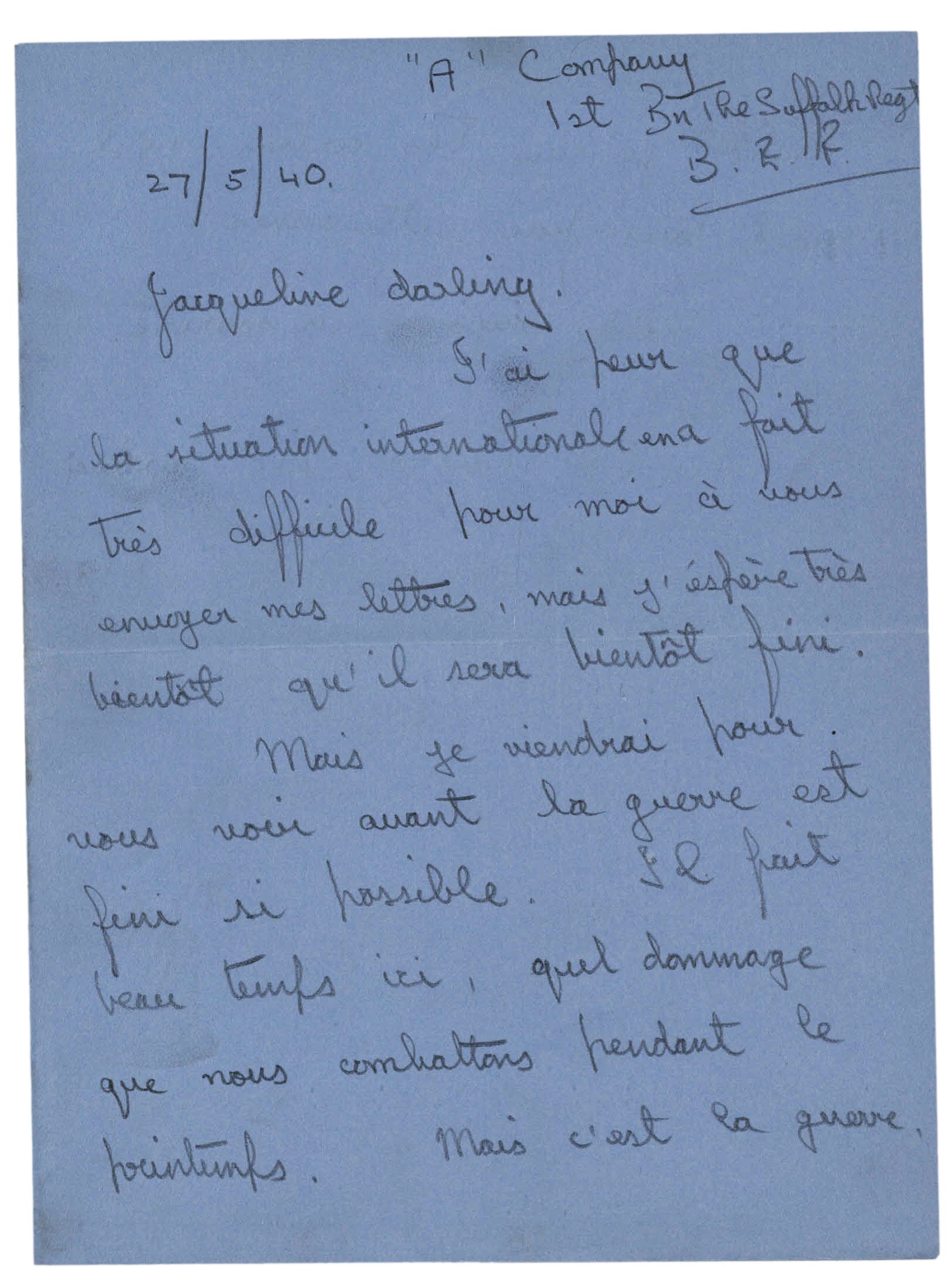
C’est la guerre – Peter De[ram]
This letter, written in French, was sent to Mademoiselle Jacqueline Hounant in Alencon. The author signed as Peter, but unfortunately it is impossible to clearly make out his last name.
Peter wrote that the weather was beautiful, and what a shame it was to have to fight in the spring, 'but, that's the war':
Il fait beau temps ici, quel dommage que nous combattons pendant le printemps. Mais c'est la guerre.
At the end of his page and a half of French, Peter's sign-off was very English:
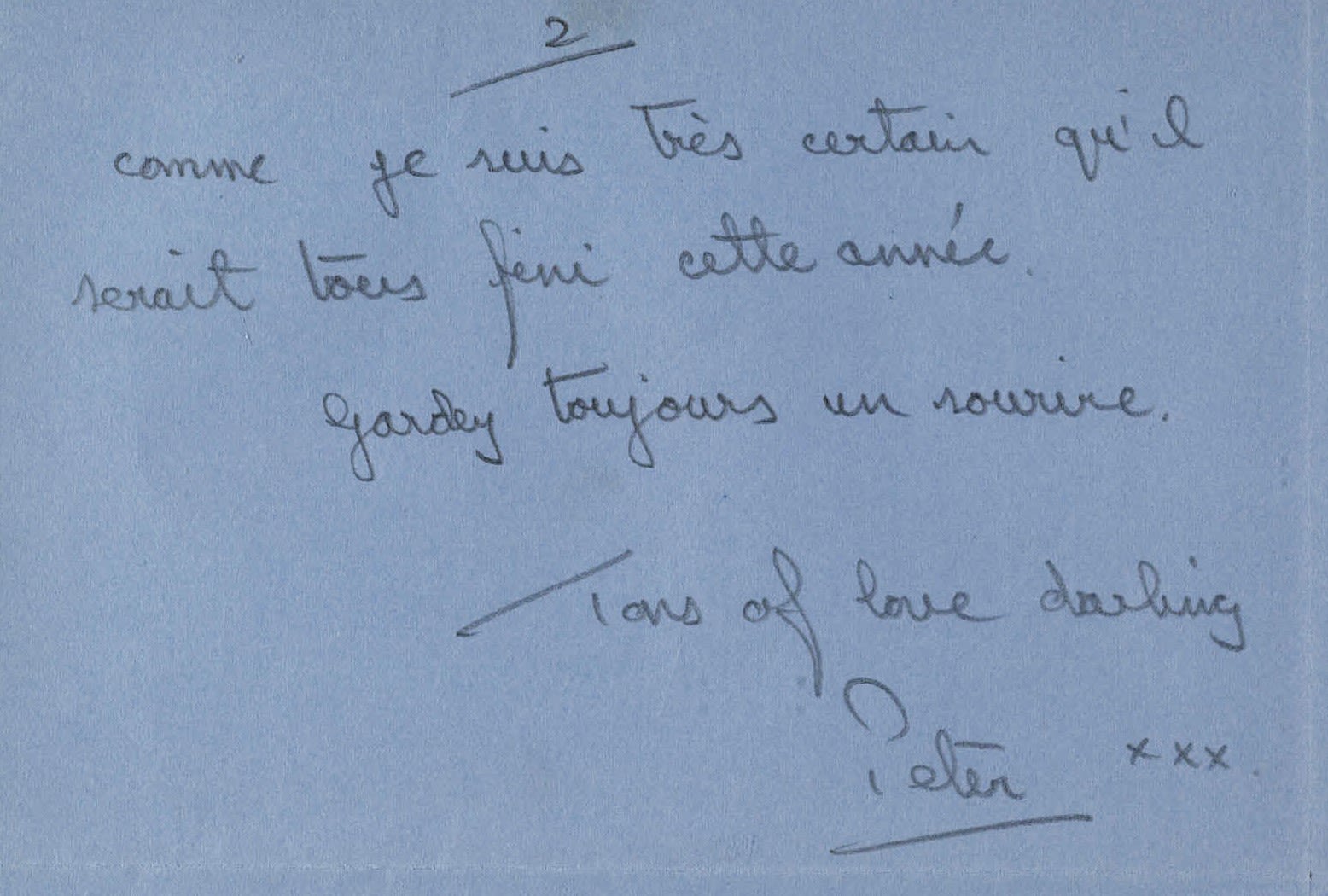
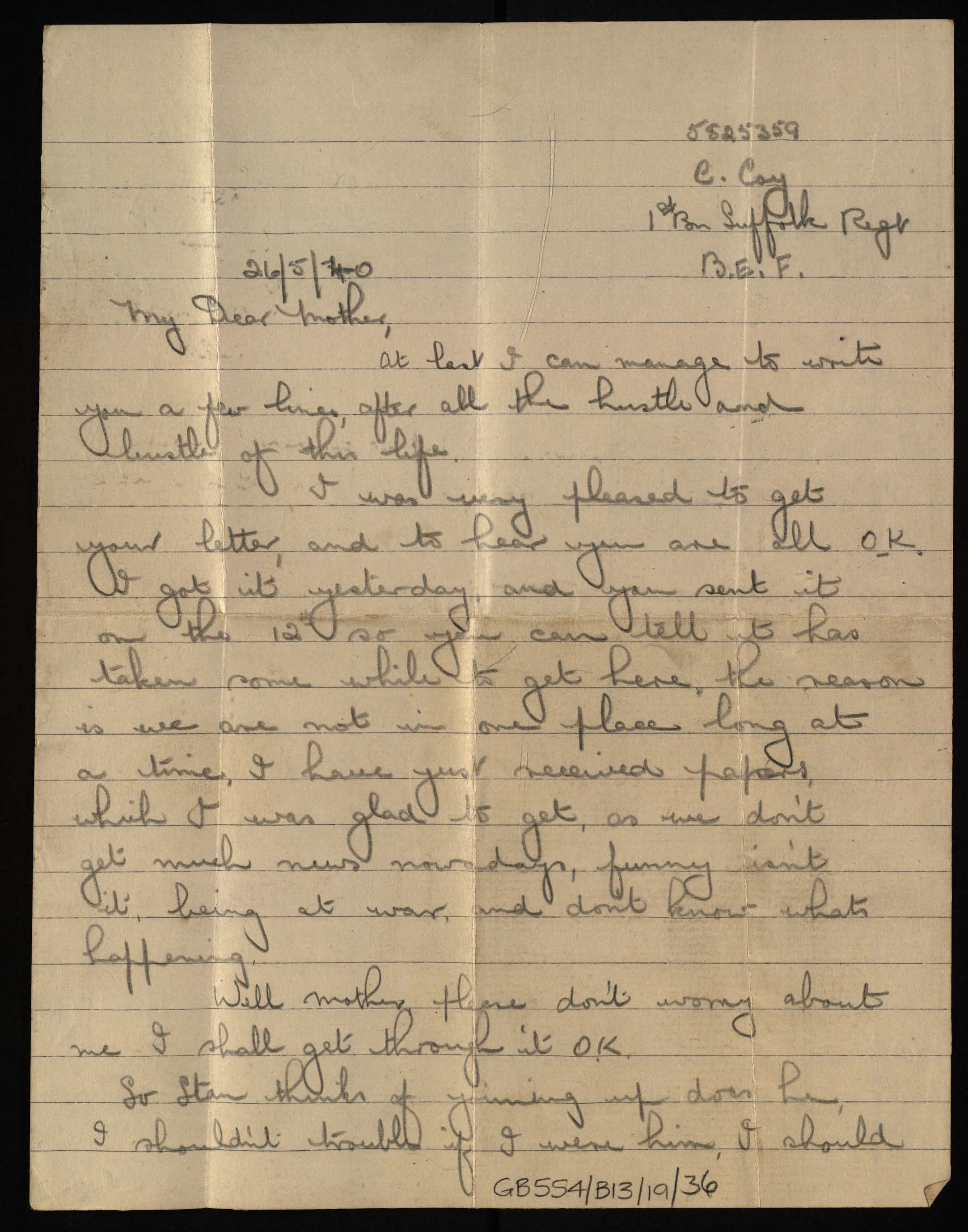
‘Roll on when this do is over’ – Harry Cole
Harry Cole wrote this letter to his mother at home in Hasketon, near Woodbridge, on 26th May 1940.
He had served with the Suffolk Regiment for 7 years in India, counting the days until his service ended. He had only returned to civilian life for a brief time before the war started and he was recalled to the army.
At last I can manage to write you a few lines, after all the hustle and bustle of this life.
Harry was the eldest of six brothers. In the letter he gave some advice for one of his younger brothers who was considering army life:
So Stan thinks of joining up does he. I shouldn't trouble if I were him, I should wait until I got called up, anyway tell him to join anything but the infantry.
Sadly Harry did not make it home.
Roll on when this do is over so we can get back to rest peace and quietness once again.
In 2020, we traced his two youngest brothers, and sent them a copy of Harry's last letter, 80 years after it was written. You can see some of the press coverage of this amazing story here.

